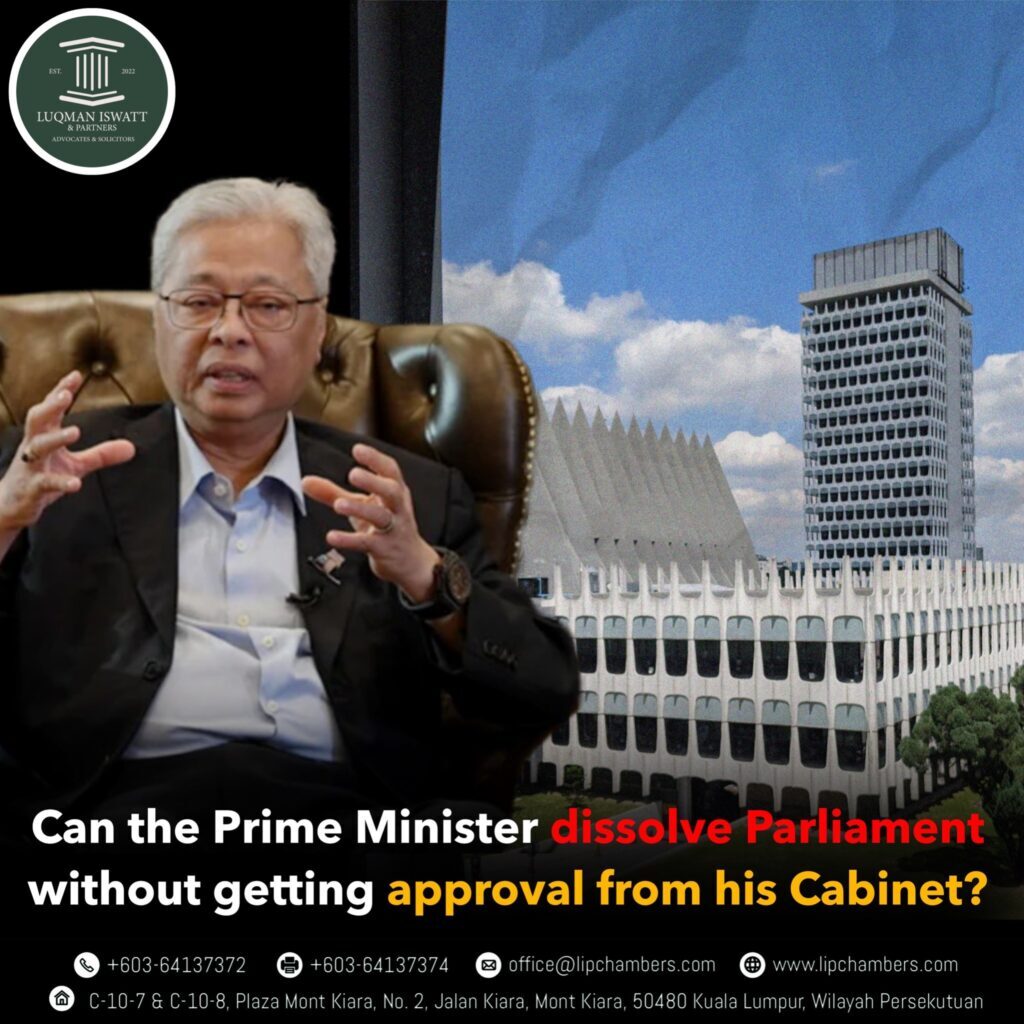
After being in a state of limbo over the past few months, Malaysians can finally stop guessing whether we are heading to the polls as the 15th General Election (GE15) is now confirmed to take place by the end of the year. This is following the announcement by now-caretaker Prime Minister Datuk Seri Ismail Sabri Yaakob that Parliament has been dissolved on Monday (10 October 2022).
As reported by Bernama, Ismail Sabri revealed that he has obtained the consent of the Yang di-Pertuan Agong Al-Sultan Abdullah Ri’ayatuddin Al-Mustafa Billah Shah to dissolve Parliament during an audience with the King at Istana Negara on 9 October 2022. Accordingly, as per Article 55 (4) of the Federal Constitution, a General Election must be held within 60 days of Parliament’s dissolution, with polling day and other relevant dates to be decided by the Election Commission (SPR) soon.
Of course, the whole ordeal is not something unexpected as Parliament’s dissolution was preceded by a series of statements from UMNO leaders pushing for GE15 to be held this year. Most notable of them was the statement by the party’s secretary-general Datuk Seri Ahmad bin Maslan post-UMNO Supreme Council meeting. Looking back, this seems to be the strongest precursor to Parliament’s dissolution.
As reported by Malay Mail, the 30 September 2022 meeting, attended by the party’s Top 5 leadership, including its vice-president and Prime Minister Ismail Sabri had decided for Parliament to be dissolved as soon as possible. The rest, as they say, is history.
Saying that the whole situation is controversial is an understatement as the manner in which the Prime Minister sought Parliament’s dissolution has sparked several constitutional issues. These include whether the request is legitimate given the lack of backing from Ismail’s own Cabinet
Thus the question arises: Can the Prime Minister dissolve Parliament without getting consent from the Cabinet? If members of his own Cabinet publicly rejected his push for early polls, does that mean that Ismail has lost majority support and accordingly, lost the legitimacy to push for Parliament dissolution?
Well, let’s examine the relevant laws and conventions, including the highest law of the land, the Federal Constitution to find out.
Who holds the power to dissolve Parliament?
In a constitutional monarchy that uses the Westminster parliamentary system of government such as Malaysia, a general election is usually preceded by a formal dissolution of the elected lower house – in this instance, the Dewan Rakyat. The dissolution of Parliament itself is an executive function which is performed by the Yang di-Pertuan Agong on the advice of the Prime Minister, as per Article 40 and Article 43 of the Federal Constitution.
Moreover, unless dissolved, parliamentary proceedings will commence for 5 years from the date of the first proceeding conducted after the General Election. At the end of the 5-year period, the Parliament will be dissolved and within 60 days from the date of its dissolution, a General Election has to be held to elect representatives for the House of Representatives. Furthermore, Parliamentary proceedings must convene at a date not later than 120 days from the date of its dissolution.
As for the parliament proceedings prior to Monday’s dissolution, it has yet to reach its 5-year expiry date and will only be automatically dissolved on 16 July 2023. Hence, there is no actual rush for Parliament to be dissolved and for GE15 to be held. However, there is nothing stopping the Prime Minister from advising for the dissolution of Parliament earlier than the expiry date and such an occurrence has actually been the norm over the past 14 GEs. In fact, the dissolution of Parliament preceding the GEs in 1978, 1982, 1986, 1990, 1999 and 2008 all took place near the 4-year mark, almost one whole year before their respective expiries.
As for the power to dissolve Parliament, Article 40(1) and (1A) prescribe that the Yang di-Pertuan Agong must act on the advice of the Cabinet or of a Minister acting under the general authority of the Cabinet. However, given that the Cabinet did not approve of Parliament’s dissolution, including Ministers from Perikatan Nasional (PN) in the Cabinet being on record to write to the Yang di-Pertuan Agong to object to holding polls this year, does this affect the legitimacy of the Prime Minister’s call for dissolution?
Is Cabinet’s approval required to dissolve Parliament?
In short, no. While the advice of the Cabinet is mentioned in Article 40(1), the Prime Minister doesn’t actually need to consult his Cabinet when deciding to dissolve Parliament. As explained by de facto Law Minister Datuk Seri Wan Junaidi Tuanku Jaafar, since our country achieved independence in 1957, no Prime Minister has ever had to discuss with Cabinet to dissolve Parliament.
Furthermore, Article 39 and Article 40 of the Federal Constitution state that the Malaysian government is governed by the Yang di-Pertuan Agong but His Majesty does not do so alone as he is advised by the Cabinet and before the Cabinet is formed, the Prime Minister is appointed by the King. In this context, any decision would be at the Prime Minister’s discretion as he is the first among equals.
In short, the power to dissolve Parliament rests with the Yang di-Pertuan Agong, but His Majesty must act on the advice of the Prime Minister. Articles 40(1) and 40(1A) prescribe:
Nevertheless, there are exceptions to this general rule, which are listed in Article 40(2) of the Federal Constitution. Specifically, the provision lists down situations where Yang di-Pertuan Agong can exercise discretion, including the withholding of consent to a request for the dissolution of Parliament by the Prime Minister.
Article 40 (2) reads as per below:
Article 40(2)(b) is the most relevant to the situation at hand, whereby the provision gives power to the King to withhold a request to dissolve Parliament. It must be noted that while this discretion is undoubted, it is not absolute as it must be done rationally and guided by other provisions of the Constitution. In other words, His Majesty must exercise his discretion without offending any other provisions of the Federal Constitution.
For example, the King can’t withhold consent for the dissolution of Parliament beyond its proceeding’s 5-year limit. We’ve already established how Parliament will automatically be dissolved on 16 July 2023, therefore the King will be unable to withhold consent for its dissolution past this date.
With that in mind, the Yang di-Pertuan Agong indeed has the power to withhold consent to dissolve Parliament under Article 40(2)(b) of the Federal Constitution, which is a prerogative power, but such a refusal has never occurred at the federal level. The refusal to consent to a request for the dissolution has only occurred at the state level during the Perak Constitutional crisis in 2009.
Nevertheless, such an issue is now academic given how the Yang di-Pertuan Agong had already exercised discretion as per the Constitution and consented to Parliament’s dissolution. As for the question of whether Ismail Sabri has lost majority support when he requested for Parliament’s dissolution, the letter written by the PN Ministers is not a form of resignation, hence the Prime Minister’s alleged loss of support can’t be proven.
In fact, Ismail Sabri even argued that the disharmony in Cabinet is one of the reasons why Parliament dissolution is needed as it affects the running of the government. According to Bernama, the Prime Minister in a statement stressed that the dissolution was made to return the mandate to the people and put a stop to all the voices questioning the legitimacy of the alleged backdoor government.
The same sentiment was also echoed by the Yang di-Pertuan Agong who asserted that he had no choice but to give consent for the dissolution of Parliament sought by Ismail Sabri due to “disappointing” political developments. As reported by Malay Mail, His Majesty agreed for the mandate to be returned to the people in order for a stable government to be elected.
Moving forward, all eyes will be on SPR for the important dates in regard to GE15, which may turn out to be one of the most important GEs in the history of our nation. Speaking of which, another legal issue has arisen with the dissolution of Parliament: Can disgraced former Prime Minister Datuk Seri Najib Razak be nominated and run as a candidate in GE15 following his imprisonment for the SRC International case?
Well, do stay tuned to find out as we will be dissecting the matter in-depth in our next exciting legal insight. Hence, make sure to follow us on Facebook and Instagram or visit our official website. You can also read our articles on the popular Malaysian news aggregator app Newswav here.
